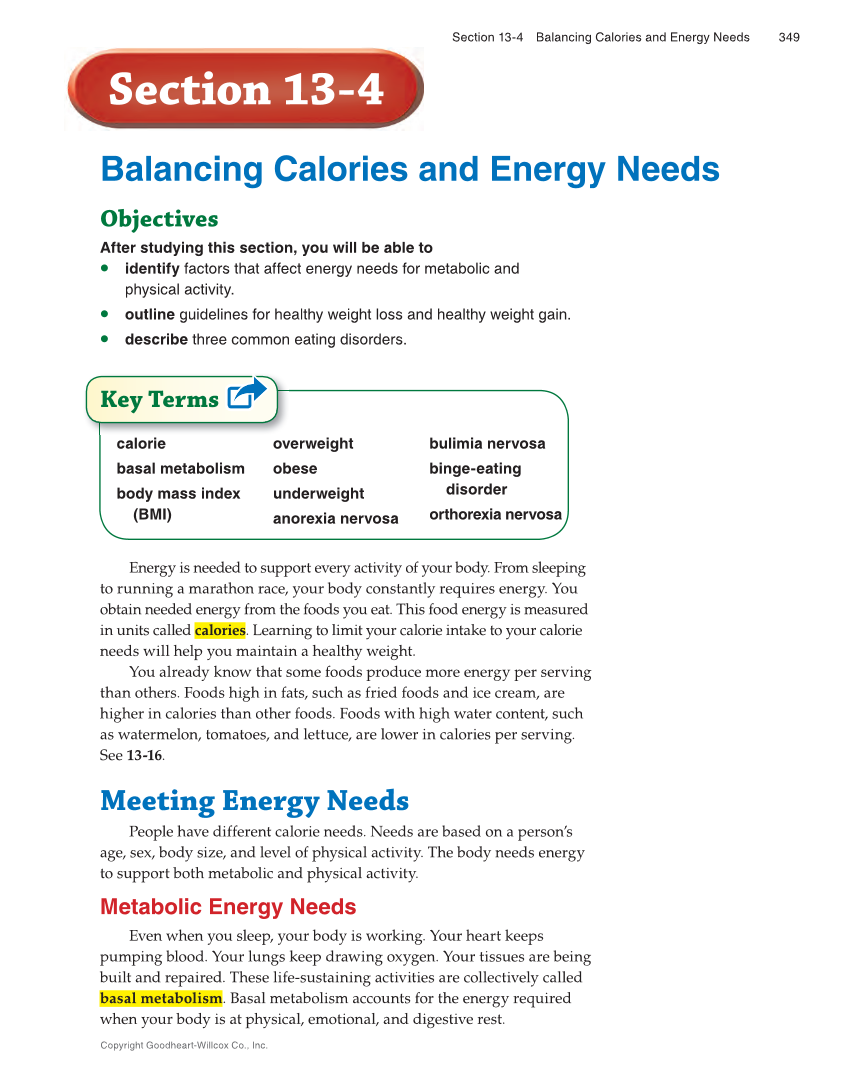Copyright Goodheart-Willcox Co., Inc. Section 13-4 Balancing Calories and Energy Needs 349 Section 13-4 calorie basal metabolism body mass index (BMI) overweight obese underweight anorexia nervosa bulimia nervosa binge-eating disorder orthorexia nervosa Energy is needed to support every activity of your body. From sleeping to running a marathon race, your body constantly requires energy. You obtain needed energy from the foods you eat. This food energy is measured in units called calories. Learning to limit your calorie intake to your calorie needs will help you maintain a healthy weight. You already know that some foods produce more energy per serving than others. Foods high in fats, such as fried foods and ice cream, are higher in calories than other foods. Foods with high water content, such as watermelon, tomatoes, and lettuce, are lower in calories per serving. See 13-16. Meeting Energy Needs People have different calorie needs. Needs are based on a person’s age, sex, body size, and level of physical activity. The body needs energy to support both metabolic and physical activity. Metabolic Energy Needs Even when you sleep, your body is working. Your heart keeps pumping blood. Your lungs keep drawing oxygen. Your tissues are being built and repaired. These life-sustaining activities are collectively called basal metabolism. Basal metabolism accounts for the energy required when your body is at physical, emotional, and digestive rest. Objectives After studying this section, you will be able to • identify factors that affect energy needs for metabolic and physical activity. • outline guidelines for healthy weight loss and healthy weight gain. • describe three common eating disorders. Key Terms Balancing Calories and Energy Needs
